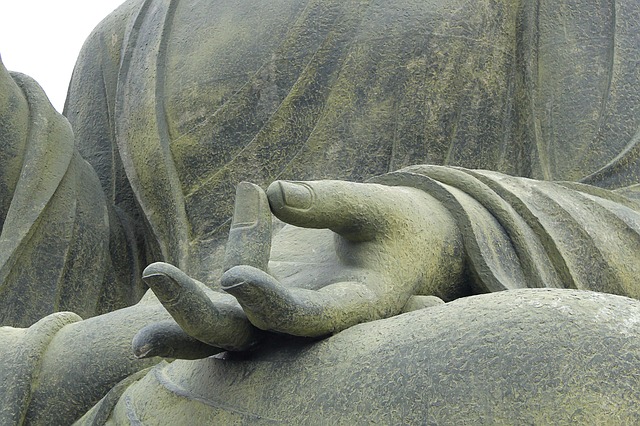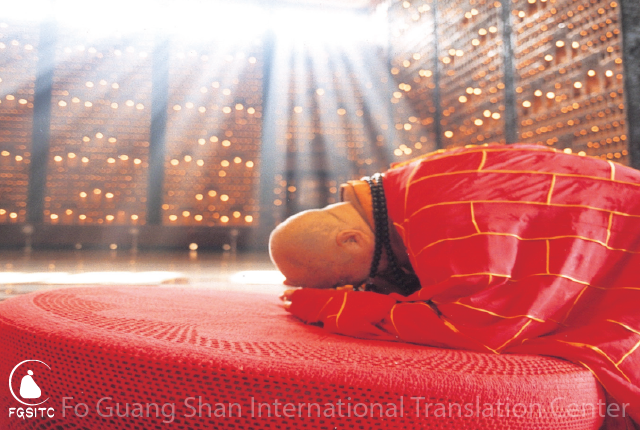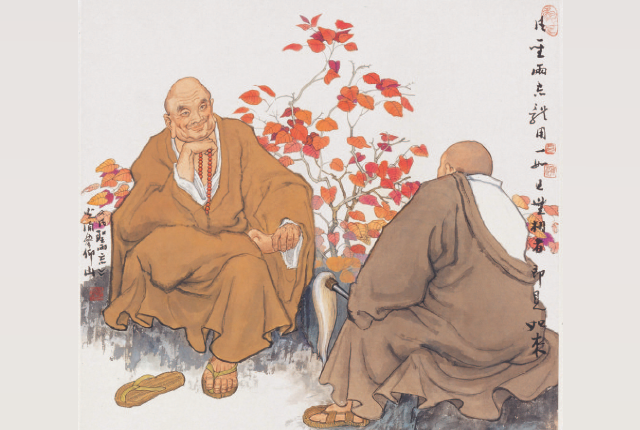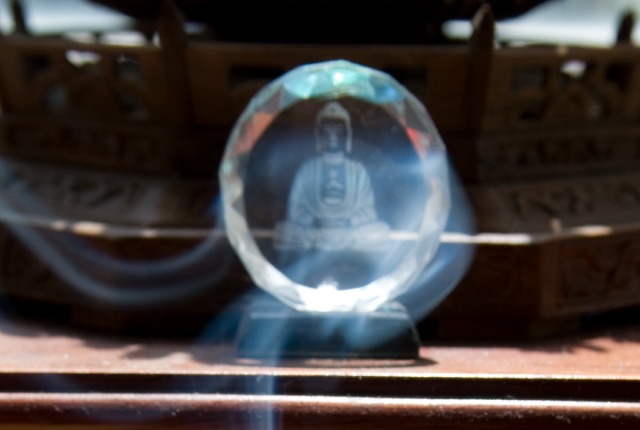
The first realization of The Eight Realizations of a Bodhisatttva Sutra is concerned with what is generally called the Buddha’s view of this world. This first realization is a description of the basic features of the world we live in. The points made in this realization are made in many other Buddhist sutras.
The Buddha emphasized these basic points on many different occasions because it is essential that we have a correct understanding of the conditions of our lives if we are to know how to apply the rest of the Buddha’s teachings. Buddhism is a religion of mental clarity. Its practices are based on reason. The central purpose of all Buddhist practice is the attainment of wisdom, or understanding.
The Buddha frequently exhorted his followers to think for themselves. All of his teachings were designed to help us help ourselves. The last line of the first realization says
Contemplate this and you will gradually turn away from the cycle of birth and death.
Contemplation is central to all of the Buddha’s teachings because mental clarity cannot be achieved without it. The first realization of this sutra contains four of the most important contemplations taught by the Buddha. These contemplations are meant to be used to help us overcome our problems. They should be applied to the actual events of our lives.
The first contemplation mentioned in this sutra is the contemplation on impermanence. This contemplation is indicated by the line this world is impermanent… nations are dangerous and fragile.
In this contemplation, we reflect on the impermanence of all things, including ourselves. This contemplation has four main purposes: to make us understand the true nature of life in this world; to alert us to the dangers of clinging to phenomenal joys; to make us feel grateful for whatever we have; and to make us want to understand more about who and what we really are. Properly practiced, this contemplation should awaken within us a longing for higher states of awareness. The Sutra of Vast Meaning says, “The contemplation on impermanence helps us overcome sloth and laziness.” The Sutra of the Elder Sumagadha says, “Contemplate that all things are impermanent and that nothing belongs to you… Understand that all things that come together must also come apart.”
The second contemplation is the contemplation on emptiness. This contemplation is indicated by the line the four great elements lead to suffering and are empty.
This contemplation makes us aware that all things are produced from many other things and therefore, no one thing can be clung to. The four elements cause suffering only when we do not realize that they are empty. Once we fully understand that they are empty, they will not make us suffer any more. This contemplation has two basic purposes: to make us realize the true nature of all phenomena, including the phenomena of our own illusory self, and to help us overcome the difficulties of life, for when we understand the inherent emptiness of our problems, we are better equipped to see through them and not react with passionate or violent emotions. The Pravara-deva-raja-pariprecha Sutra says, “Profound contemplation on emptiness takes us far from any individual point of view while it suffuses us with equanimity.” The Sutra on the Practice of Great Wisdom says, “When we do the contemplation on emptiness, we should do it with our whole mind and not become distracted by anything, for if we are not distracted by anything then our realization will not be tainted with falseness.”
The third contemplation is the contemplation on the absence of a true essence, or the absence of a true self. This contemplation is indicated by the line the five aggregates are without a self.
This contemplation is roughly the same as the contemplation on emptiness, though it is directed more at the illusory self of the person than at the phenomena that the person perceives. This contemplation, as does the contemplation on emptiness, recalls the line all things arise, cease, change and become different. They are illusory, not real, and cannot be controlled. The Sutra on the Emptiness of the Five Aggregates says, “Contemplate the five aggregates and see that there is neither a self within them nor anything that might belong to a self. Then continue contemplating this and realize that in the entire world, there is nothing that you can really grasp or have.
The fourth contemplation is the contemplation on uncleanness. This contemplation is indicated by the line the mind is the source of unwholesomeness and the body is a gathering of wrongdoings.
A Wholesome mind! A wholesome mind!
People always want others to have a wholesome mind but there are still many people who do not have wholesome minds. There are those who commit sexual misconduct, steal from or rob others of their money or belongings, and speak unwholesome words. Although these wrongdoings are done by the body, hands and mouth, their creator is the mind.
Buddhism does not disapprove of wholesome love between a man and a woman but it does disapprove of love that is unhealthy and unsound. It is unfortunate when love becomes heartbreak and some who once loved will now assault or even kill others in the name of love. These wrongdoings are created by the mind.
One’s bright inherent nature is covered if the mind is selfish. When one’s mind is too selfish, one will not consider justice, reason and friendship and therefore one is likely to commit harmful acts. In this world, gossip among people or family members and the wars among nations are from the selfish mind. If all of us can develop our wholesome mind and turn away from wrongdoing – the source of which is the selfish mind – the world can be in peace and human beings can attain real happiness.
A beautiful body is beloved by most by us and we desire the wealth of this world. However, at the end of our life, neither body nor wealth can follow us; only the mind, about which we have been less concerned, will follow us from this world to the next.
Nowadays, many people are busy with enjoyment of the body, and few are working to cultivate and purify their minds. No wonder there are so many imperfections in the world. The body and the wealth are not ours. Only cultivating the mind can bring lasting happiness.
If the four contemplations mentioned above are used often and applied to our lives, the day will come when we will stop making ourselves victims of our own self-defeating thoughts and behaviors. In the clarity that results from the absence of our customary confusion, we will see that our minds are far more wonderful than we had ever imagined before.
From The Great Realizations, written by Venerable Master Hsing Yun.
Image from Pixabay.












